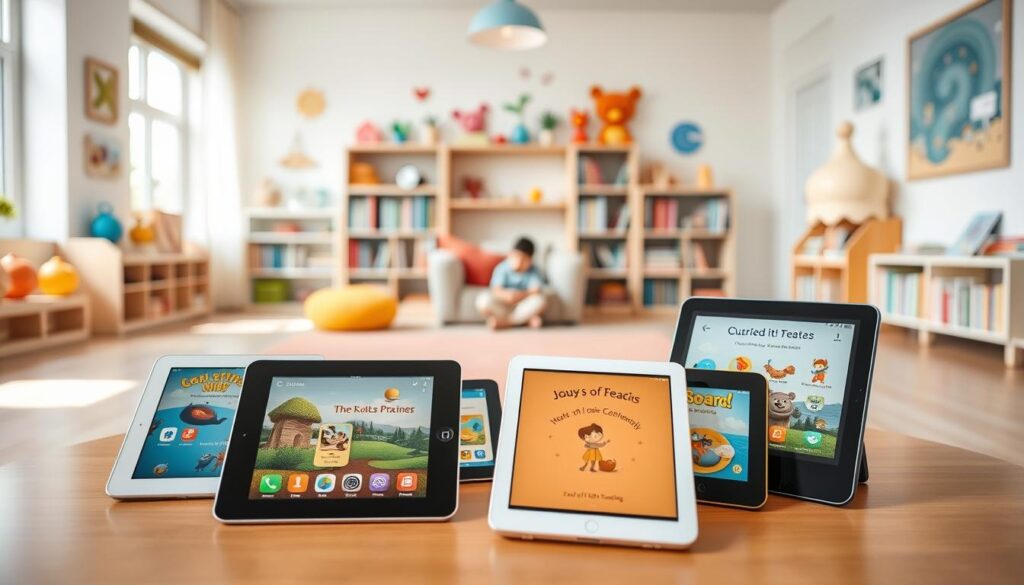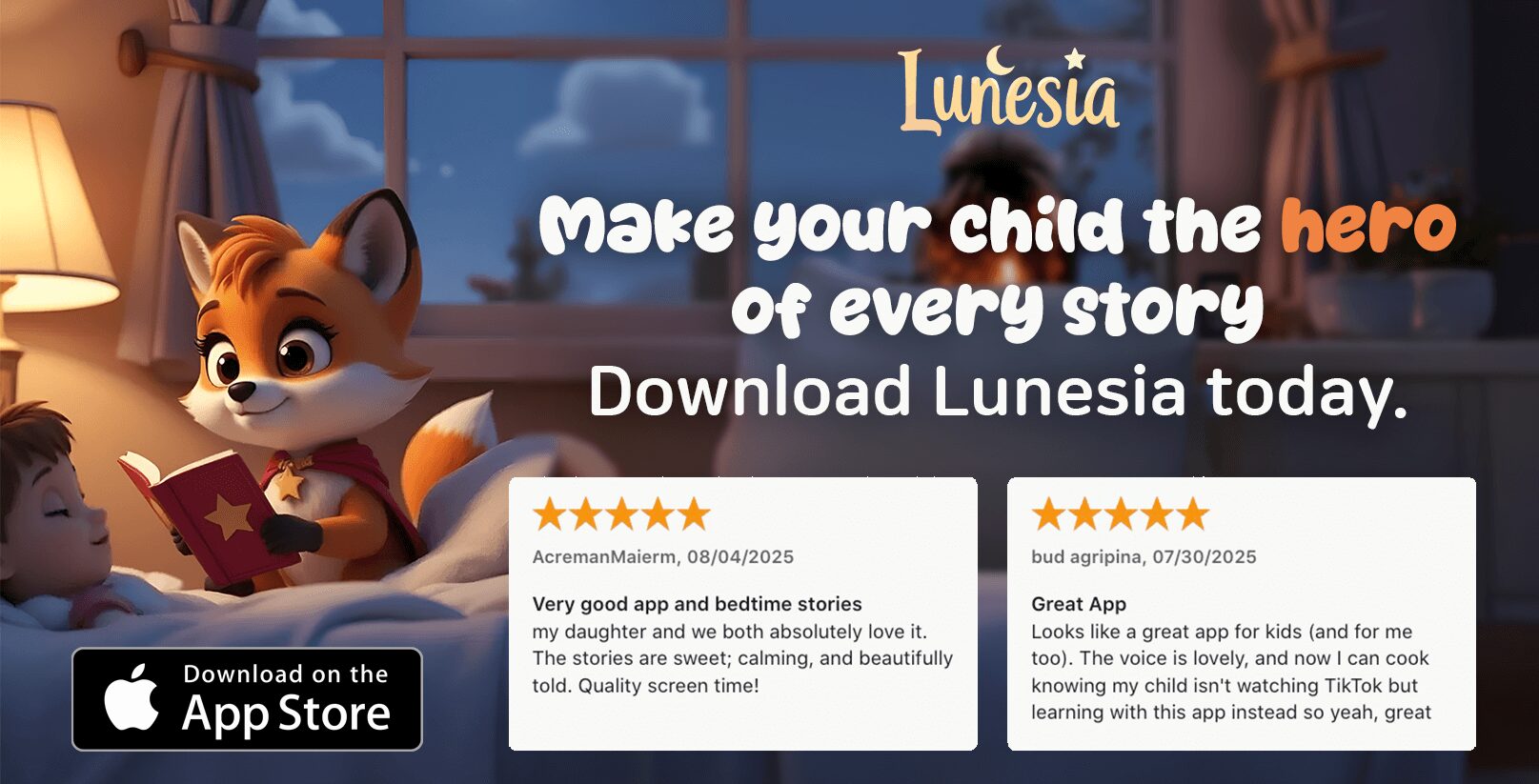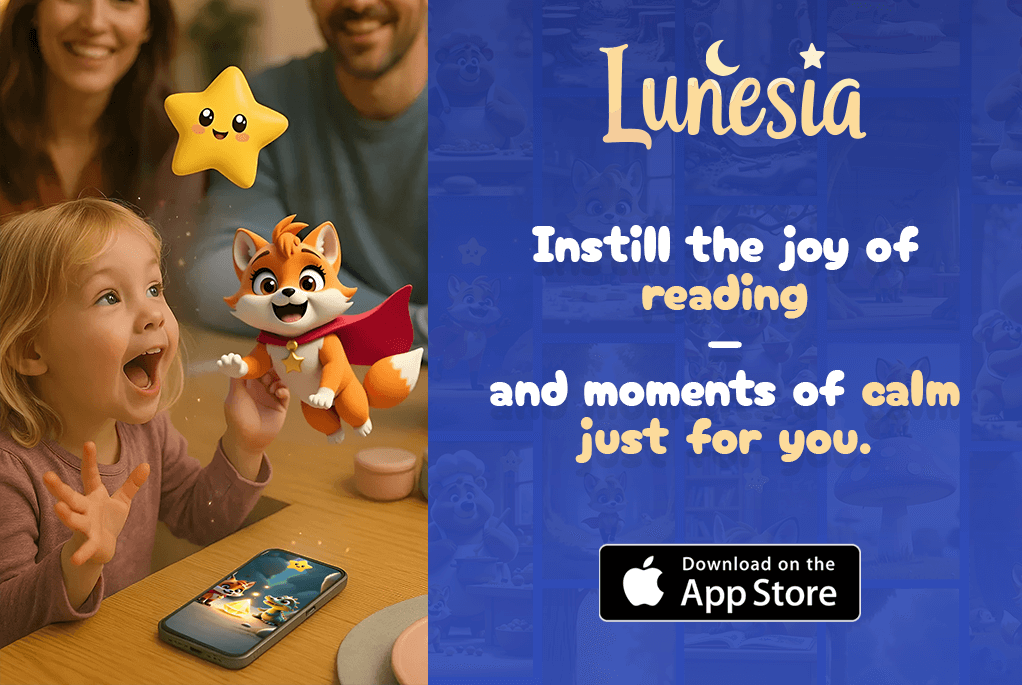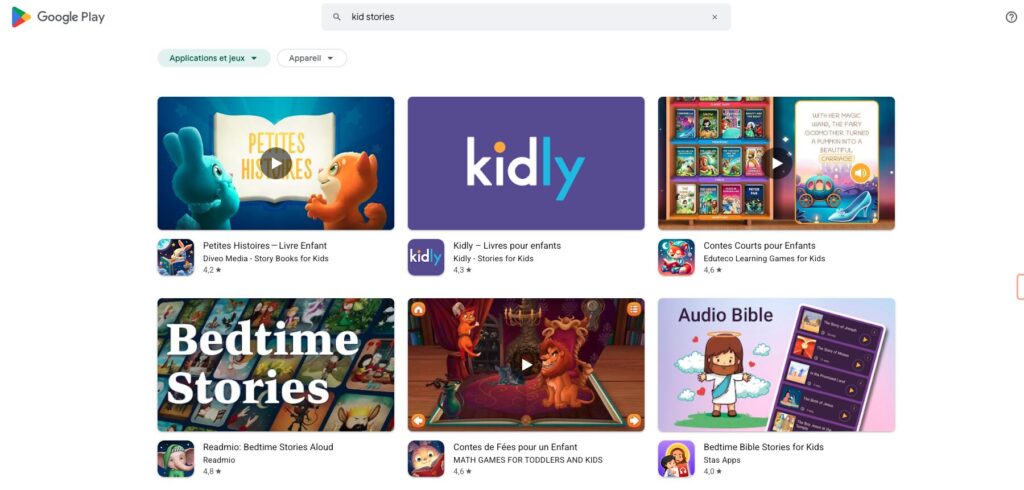As a parent, there’s nothing quite like watching your child develop a love for reading. It’s a journey that not only enhances their academic skills but also opens doors to new worlds and imagination. With the rise of digital reading apps, it’s easier than ever to provide your child with access to a vast library of books. But with so many options available, choosing the right one can be daunting.
I’m here to help you navigate this decision by comparing two popular platforms: ReadingIQ and Lunesia. Both are designed for young children, but they take different approaches to fostering a love for reading. ReadingIQ offers an extensive collection of leveled readers, while Lunesia focuses on interactive narratives. Let’s explore which might be the better fit for your child.
In this comparison, we’ll delve into the features, benefits, and differences between these two platforms, helping you make an informed decision about which one aligns best with your child’s reading needs and interests.
Understanding Digital Reading Platforms for Children
As we navigate the complexities of raising children in a digital world, understanding the role of digital reading platforms is crucial. In today’s world, digital literacy has become an essential skill for children, starting as early as age 2 when they begin to interact with technology.
Digital reading platforms have revolutionized the way children consume books and develop their reading skills. These platforms offer a vast library of books and interactive narratives that can captivate young minds and foster a love for reading.
The Importance of Digital Literacy for Ages 2-8
For children ages 2-8, these formative years represent critical windows for language acquisition and early literacy skill development. Digital literacy is no longer a luxury but a necessity, as it prepares children for a future where technology will continue to play a significant role.
By introducing digital reading platforms, parents can provide their children with the tools they need to develop digital literacy skills, ensuring they are well-equipped to navigate the digital world.
How Digital Reading Apps Support Early Literacy
Reading apps provide a bridge between traditional books and the digital world, offering interactive elements that can engage reluctant readers in ways physical books sometimes can’t. These apps can adapt to a child’s reading level in real-time, providing just-right challenges that keep children in their learning “sweet spot.”
Quality reading apps don’t replace traditional reading—they complement it by providing additional exposure to text, vocabulary, and storytelling in formats that may capture kids’ attention. By leveraging these digital tools, parents can support their child’s reading time and help them develop a lifelong love of reading.
ReadingIQ: A Comprehensive Digital Library

For parents seeking a comprehensive digital reading solution, ReadingIQ stands out. With an impressive collection of over 7,000 books, it’s an ideal platform for children aged 2-12. Created by Age of Learning, the same company behind ABCmouse, ReadingIQ focuses on supporting every stage of reading development.
Platform Overview and Content Library
ReadingIQ is an online library that offers thousands of books for kids to read at home or in the classroom. The platform includes hundreds of professionally voiced-over titles perfect for pre-readers, enhancing their early literacy skills through audio narration.
Key Features and Reading Levels
The platform organizes books by reading levels, including “Pre-readers,” “Emerging Readers,” “Growing Readers,” and “Independent Readers.” Parents and teachers can select books based on different leveling systems like Accelerated Reader, Guided Reading, and Lexile levels. This ensures that children can read books that match their reading abilities.
Usability and Device Compatibility
ReadingIQ works seamlessly across multiple devices, including desktops, tablets, and phones. The app offers a clean, straightforward interface, allowing children to browse categories, select books, and start reading with minimal assistance. With unlimited access to the library for $7.99 a month, families can enjoy reading together without worrying about additional costs.
Lunesia: Interactive Narrative Experience
Lunesia’s approach to children’s digital reading is distinct, emphasizing interactive narrative experiences over traditional e-books. This platform is designed to captivate young readers with engaging stories and interactive features.

Platform Overview and Content Approach
Lunesia offers a curated collection of original stories designed for digital interaction. The content is tailored for children aged 2-8, featuring colorful animations, sound effects, and interactive elements that respond to touch. By visiting Lunesia’s website, you can explore more about their approach to fostering creativity in kids.
Key Features and Interactive Elements
The platform’s stories often feature branching narratives where children’s choices affect the outcome, promoting critical thinking and decision-making alongside reading skills. Interactive elements include touchable characters that animate, hidden surprises, and voice recording features. These features make reading an immersive and engaging experience for young readers.
Usability and Device Compatibility
Lunesia is designed with an intuitive interface that young children can navigate independently. The platform is compatible with multiple devices, including tablets, smartphones, and desktops, ensuring a seamless reading experience across different screen sizes.
ReadingIQ vs. Lunesia: Direct Comparison
Understanding the differences between ReadingIQ and Lunesia can be crucial in selecting the most suitable reading platform for children aged 2-8. As a parent, you’re likely looking for a platform that not only fosters a love for reading but also supports your child’s educational journey.
Content Library and Reading Experience
ReadingIQ boasts an extensive library of over 7,000 books, offering a traditional reading experience with digitized versions of popular children’s books and educational texts. In contrast, Lunesia provides a smaller but more interactive collection of original stories, enhancing the reading experience with dynamic pages that respond to touch.
- ReadingIQ: Over 7,000 books, traditional reading experience
- Lunesia: Interactive storytelling, original content
Educational Approach and Learning Outcomes
While both platforms support reading development, they differ in their approaches. ReadingIQ aligns closely with school reading programs through its leveled reading system and inclusion of recognized educational titles. Lunesia, on the other hand, takes a play-based learning approach, embedding educational concepts within interactive narratives.
Pricing and Subscription Options
ReadingIQ costs $7.99 a month, with options for a free trial and annual subscriptions around $29.99. Lunesia’s pricing structure differs, and parents should consider their budget when choosing between the two. ReadingIQ allows up to three child profiles per account, making it a potentially cost-effective option for families.
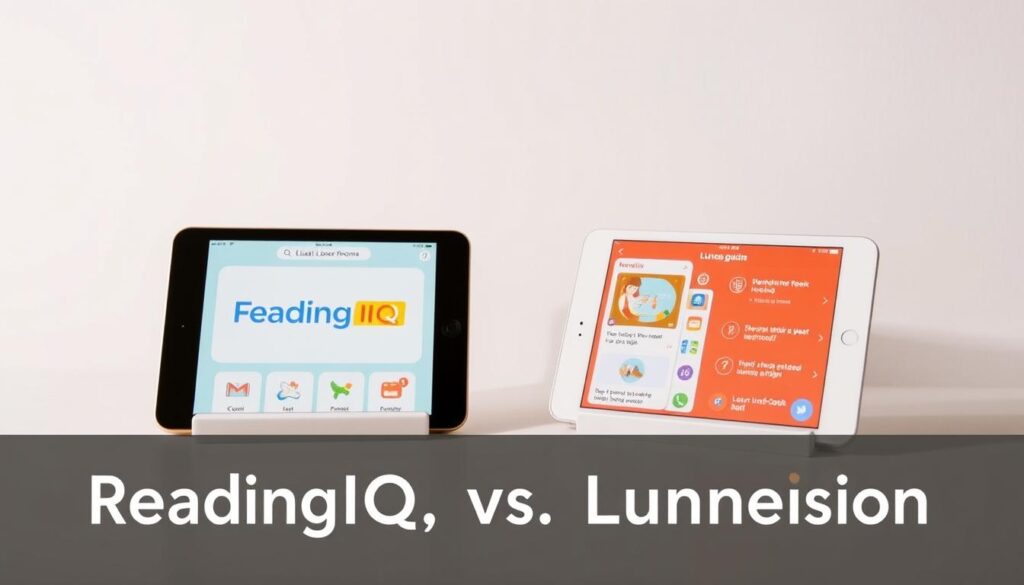
Conclusion: Which Platform Best Suits Your Child?
The decision between ReadingIQ and Lunesia hinges on understanding your child’s unique reading needs and preferences. For children who benefit from a vast library of traditional books with leveled reading options, ReadingIQ is an excellent choice, offering a breadth of titles that align with school standards.
On the other hand, if your child thrives on interaction, Lunesia‘s interactive storytelling might be more engaging. Consider your child’s reading style and interests. Both platforms offer a free trial, allowing you to assess which one your child prefers. Remember, the best platform is one that your child will use consistently, fostering a love for reading that lasts.
By choosing the right platform, you’re supporting your child’s reading journey and setting them up for success in their educational path.
FAQ
What is the age range for these digital reading platforms?
Both platforms cater to children aged 2-8, providing a range of content suitable for early learners and developing readers.
Can I access these platforms on multiple devices?
Yes, both platforms are compatible with various devices, including tablets, desktops, and other supported devices, allowing you to access your child’s reading content across different platforms.
How do I track my child’s reading progress?
You can monitor your child’s reading progress through their account, which provides insights into the books they’ve read, their reading level, and the time spent reading.
Are there any free trials available for these platforms?
Yes, both platforms offer a free trial period, typically for the first month, allowing you to explore their content and features before committing to a subscription.
What kind of content can my child access on these platforms?
Both platforms provide access to thousands of books, including leveled readers and interactive narratives, catering to different reading levels and learning styles.
Can I customize the reading experience for my child?
Yes, you can create a personalized reading experience for your child by setting their reading level, tracking their progress, and selecting content that suits their interests and learning needs.
How do these platforms support early literacy skills?
Both platforms are designed to support early literacy skills by providing engaging, interactive content that fosters a love for reading and helps children develop their reading skills.
